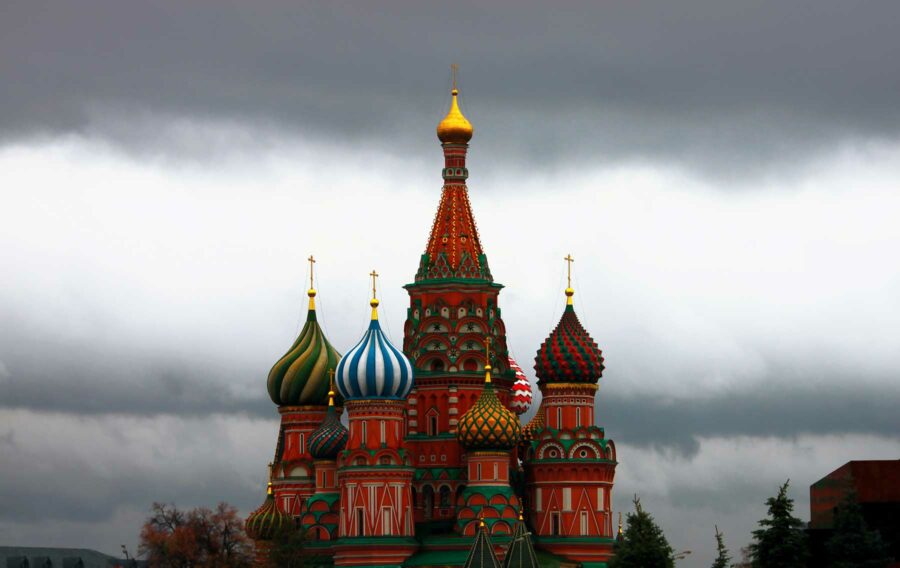Attentiveness: A Nation’s Soul
Some of the most profound and transformative Christian spirituality of the modern period came out of Russia in the 19th century. Listening to Russian religious and political leaders today, we would never guess this to be the case. It is hard to believe that the nation’s soul was so recently revived. I say “recently revived” but that is because I am speaking as a historian and so the last few centuries is recent history.
On a spiritual level, flowing through the many pathways of human society two of the most influential spiritual pieces of Russian literature were published: The first Russian translation of the Philokalia[1] was available in 1857 and the very influential anonymous volume The Way of the Pilgrim was published in 1884. The spirituality from these related works had a great influence on Russian literature of the 19th century: Nikolay Golgol, Leo Tolstoy, and Fyodor Dostoyevsky to name a few. These writings have even had a global influence up to today in global spiritual writings.
And yet, in Russia the 19th century was also a period of violence, warfare, new Enlightenment ideas, and struggles to modernize (Russia did not free the serfs until 1861: The Emancipation Manifesto, however required redemption payments so it was emancipation with strings attached).[2]
It is hard to overstate the influence of these two important works for Russia. The Pilgrim himself (in the 1884 volume) refers to Scripture and the Philokalia as he wanders struggling to obey the simple command of Paul: “…pray without ceasing.” (I Thessalonians 5:17) These are spiritual works that commend humility, simplicity, constant prayer, kindness, attentiveness to both Jesus and to each other. Chrisitan virtues are the incense that fills the air of these writings.
If a historian of spirituality were to discuss Russian political history in the 19th century, they would have a hard time making connections. Russian rulers were Czars or emperors who are known mostly for wars even as they ruled in an awkward and often contentious relationship with Patriarchs, priests, and monks (Catherine the Great closed over half of the monasteries in 1764). But Christianity is not just the institutional church, as we know. Spiritual renewal is a work of the Holy Spirit, and He brings renewal without the planning or permission of priests, bishops, or Patriarchs.
The great renewal of Russian Christianity came, as it often does, from both remembrance and humility. In this case it was the memory of the writings of the Christian ancients and the humility to live simply and to be silent before the Triune God. In the late 18th century, a movement of starets or Orthodox spiritual guides (elders) permeated Russian lands. These were spiritual guides who lived simply, “prayed without ceasing,” and were recognized by lay people as full of the Holy Spirit. They were influenced by the Church Slavonic translation of the Philokalia: remembrance and humility.
Institutional Church, Czars, and spiritual revival. How do we sort this out?
I am thinking about this today because of the great and ongoing violence taking place in Ukraine, where Christianity first arrived among the Rus peoples in 988. We know that the conversion of Prince Vladimir of Kiev meant the transformation of the Rus peoples. The following was written on the millennial anniversary of the ruler’s conversion.
“This [conversion] coincided with the beginning of the long and bitter struggle of the State of Kiev, now becoming Christian, against the mass of the Russian Slavs who remained pagan, especially in northern Rus’, where the old Norse pagan religious traditions of Novgorod were stronger, as was the ancient Slavonic pagan way of life.”[3]
The conversion of the Prince was genuine, but the struggle of Christian identity and real discipleship was only beginning. It was, and always has been a spiritual battle. The demons resist the rule of Jesus over the hearts of rulers and peasants alike. The conversion was genuine, but it was also very complicated. It was complicated by all the Norse idols crying out for attention through the Slavic peoples. It was complicated by the rule of successive princes, czars, and empresses. It was complicated by migrations, and the clashes of cultures, languages, nations and tribes.
I have come to a conclusion: always work for the deep spiritual renewal of local churches and especially the poor. At the same time work for the presence of Jesus in all dimensions and levels of culture (the arts, literature, sports, voluntary societies). Finally, work and pray for the conversion and full discipleship of political rulers. However, in all this prayer and spiritual work, be aware of the demons who work through the three foundational vices: pride, avarice, and the passions. The soul of a nation is preserved only by being so attentive.
[1] A compilation of important Orthodox spiritual writings from the fourth through 15th centuries.
[2] Lincoln was aware of Alexander II’s Emancipation, in fact Harriet Beecher Stowe’s Uncle Tom’s Cabin was well known in Russia and was influential in the movement toward emancipation. The two leaders were friends through correspondence, and both were later assassinated.
[3] Philaret, Metropolitan. “The Influence of Christianity on the Cultural and Spiritual Development of Society.” In The Christianization of Ancient Russia: a millennium, 988-1988. Pp 217-228.
 Dr. Scott W. Sunquist, President of Gordon-Conwell Theological Seminary, is author of the “Attentiveness” blog. He welcomes comments, responses, and good ideas.
Dr. Scott W. Sunquist, President of Gordon-Conwell Theological Seminary, is author of the “Attentiveness” blog. He welcomes comments, responses, and good ideas.
